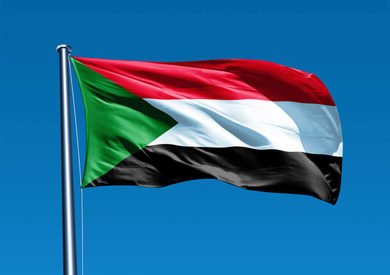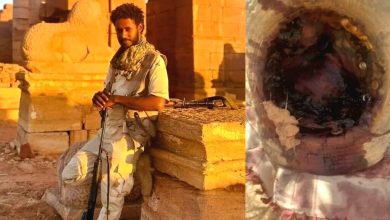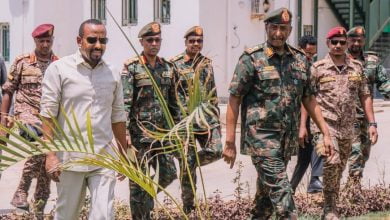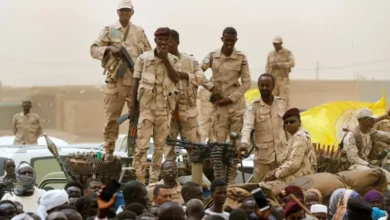Amidst Intersecting Agendas: Birth of an Independent National Vision for Post-War Sudan

Cairo – almohagig: Sabah Musa
The crisis in Sudan has intensified, with external initiatives multiplying to end the war in the country. Nearly a year after the outbreak of the war, many actors, regionally and internationally, have tried to push their agendas through several external initiatives.
The true intentions behind these initiatives quickly became apparent, with some failing and others freezing due to conflicting interests. Visions for solutions are competing and conflicting.
When Sudanese nationalists realised that their crisis would only be resolved by their own hands, with the assistance of sincere regional actors who stand as a solid barrier to prevent interference in Sudan’s internal affairs, thereby preserving its institutions, including the armed forces, the remaining safety valve for this afflicted country, many rushed to initiate a comprehensive Sudanese dialogue, without exclusion, in an attempt to build a fundamental political, economic, and security cohesion.
After Sudanese nationalists became reassured that the army had control over the conflict, internal and external agenda holders rushed to impose external initiatives to introduce them into the new political equation in post-war Sudan.
Internal initiative
holders are now rushing to establish a new foundation that will lead to a future that avoids all the mistakes that led to this war.
Amidst these internal initiatives, a new vision was announced yesterday, born out of the belief and conviction of its proponents that the crisis will only be resolved internally. This is to block any external ambitions executed through internal proxies, reproducing the crisis or perhaps aiding in creating a state under the control of the covetous.
NFP advocates
On 20 March 2024, a new political document called the “National Foundation Platform” (NFP) was announced. It was said to have been agreed upon by a group of political and intellectual elites from diverse political and intellectual backgrounds, prominent national figures, and symbols of civil society.
The document will be shared with national political forces for consensus, aiming to serve as a roadmap for the near future following the end of military operations.
Advocates of the NPF stated that the diverse group that adopted it does not represent a political alliance or a front but instead is an intellectual effort to contribute to shaping the general trends for the post-war period in Sudan. This is to smoothly transition from the current quasi-constitutional situation in Sudan to a state with the largest possible consensus among national components and popular representation, given that gaining popular legitimacy through elections is not currently available.
Temporary Mechanisms
The signatories proposed three temporary mechanisms, the National Foundation Committee, the National Foundation Council, and the Sudanese-Sudanese Dialogue, to achieve this representation and preparation before the transition to general elections.
The NFP adopted the option for parties to refrain from direct participation in governance institutions during the transitional period. Instead, they can participate in the Sudanese dialogue and have symbolic representation in the National Foundation Council. Political parties should focus on building their structures and communicating with their members and voters in preparation for the electoral process.
To shed more light on this new initiative, Almohaqiq attempted to communicate with its signatories to further understand the idea, composition, objectives, and mechanisms of future action and to what extent this national initiative can withstand the stormy external winds laden with all ambitions in Sudan.
A Gloomy Era
Ambassador Abd al-Mahmoud Abd al-Halim, Sudan’s former ambassador to Cairo and one of the initiative’s signatories, affirmed that Sudan is going through what he described as a “gloomy” period in its history. He told Almohaqiq that our country is at a crossroads that we never imagined in our worst nightmares and is going through a crucial moment where we must either overcome this bitter experience or fall victim to the flames of this destructive war, preceded by a political deadlock. “We have convened, talked, and affirmed that the banner of this giant nation should never fall and that trials give birth to grants inspired by the experiences of countries that emerged from their conflicts stronger than before” he added.
He emphasised that this group of community symbols and personalities, with their diverse experiences and thoughts, does not represent a political alliance, regional formation, or local action but emerges through their deliberations and intellectual brainstorming with a set of ideas and proposals. He explains “We hope these will form the performance tableau after the war has come to an end. We have also agreed that the parties should refrain from direct participation in governance institutions during the transitional period, explaining that the initiative also put measures in place to prevent military control over the transitional period.” He said these ideas will be subject to consultation with national political forces for consensus.
Wide Spectrum
Dr. Mayada Suwar al-Dhahab, President of the Liberal Democratic Party and one of the initiative’s signatories, explained that the NFP is an idea whose main features were discussed several months ago and that it has been addressed by a broad spectrum of those interested in public affairs from various intellectual and political orientations.
Suwar al-Dhahab told Almohaqiq that the NFP is a vision proposed for everyone and will be presented to all political blocs, civil society and national figures. She added that the proposed formula remains subject to amendment whenever needed, explaining that the aim is to create the greatest possible consensus among Sudanese people to discuss and agree on how to lead their country out of its current crisis and build a prosperous and stable nation.
She explained that the initiative is a vision or roadmap to contribute to shaping the general trends for the post-war period and that it has been agreed upon by influential figures in the field with diverse intellectual backgrounds, noting that the writings and contributions of politicians, experts, and academics guide the NFP.
National Project
Suwar al-Dhahab confirmed that the strength factor of the initiative stems from the essence of the idea and the urgent reasons for establishing a foundational platform after this war, which clearly showed the need of the Sudanese people for an integrated national project that achieves the required consensus for Sudanese people in the current critical phase, which consists of re-establishing the state after the war. She said that this requires practical foundational proposals to form the basis for the largest possible consensus among Sudanese people to build a modern state that achieves prosperity and stability, adding that this requires national institutions that Sudanese people agree on their formation, tasks, and outcomes. She also said communication will be made with all political components and sovereign institutions and that the initiative is subject to improvement.
Opportunities and Challenges
Mohammed Mohammed Khair, a writer and journalist, described the initiative as a “good and appropriate” proposal to solve the crisis in Sudan, announcing his full support for this vision.
He told Almohagig that this proposal is characterised by rationality, which is currently lacking in the Sudanese political dispensation.
He added that the initiative’s signatories are known for their competence, self-denial, lack of desire for power, good reputation among the public, and high status.
He added that this project differs from other internal projects presented for a solution now and that the difference lies in the fact that the proponents of the other projects have ambitions for power, which is directly reflected in their projects and visions for the solution.
He confirmed that this vision could find its way to a solution. Still, it will face significant challenges and a counter-campaign from those greedy for power, saying that the initiative’s mechanisms should include media support and individuals handling it, avoiding any suspicions surrounding them.
Mohammed Mohammed Khair also pointed out that the emergence of such internal initiatives reflects anticipation of a new situation in the country and may indicate that the war will soon end. He added that these groups are trying to prepare for the post-war period, and the continuation and success of such initiatives lies in their independence and the strength of those defending them, away from the lust for power.





